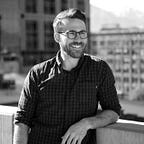(039) Nietzsche’s “Beyond Good and Evil”, One Paragraph at a Time
I’ve struggled in all my attempts to read and comprehend Nietzsche’s “Beyond Good and Evil”. These blog posts are my attempt to better understand this material. I encourage any corrections or criticisms in the comments.
Chapter Two: The Free Spirit
39. Nobody will very readily regard a doctrine as true merely because it makes people happy or virtuous — excepting, perhaps, the amiable “Idealists,” who are enthusiastic about the good, true, and beautiful, and let all kinds of motley, coarse, and good-natured desirabilities swim about promiscuously in their pond.
No one will believe a doctrine to be true merely because it causes one to have happy or virtuous feelings. However, the “idealists” who, while being concerned with goodness, truth, and beauty, are prone to various kinds of wishful thinking.
Happiness and virtue are no arguments. It is willingly forgotten, however, even on the part of thoughtful minds, that to make unhappy and to make bad are just as little counter-arguments.
Feelings of happiness and virtue simply cannot be construed as statements of truth.
Furthermore, it is often forgotten by even the most thoughtful minds that to think we must go through the process of constructing counter-arguments that inevitably make us feel bad or unhappy
A thing could be TRUE, although it were in the highest degree injurious and dangerous; indeed, the fundamental constitution of existence might be such that one succumbed by a full knowledge of it — so that the strength of a mind might be measured by the amount of “truth” it could endure — or to speak more plainly, by the extent to which it REQUIRED truth attenuated, veiled, sweetened, damped, and falsified.
Some known things can be both true and extremely harmful and dangerous to the knower. Such things could be part of the essential nature of existence and to understand them completely might lead to one’s destruction.
A strong thinker would be gauged precisely by how much “truth” he could tolerate. Or more precisely, the strength of such a thinker would be gauged by how much he requires the truth to be diluted, disguised, sweetened, muted, and falsified.
But there is no doubt that for the discovery of certain PORTIONS of truth the wicked and unfortunate are more favourably situated and have a greater likelihood of success; not to speak of the wicked who are happy — a species about whom moralists are silent.
There is a certain type of person, which Nietzsche describes as “the wicked”, who are more favorably situated to handle the kind of negative truths that would otherwise be harmful to virtuous beings. It is also possible for wicked people to be happy, but the moralists are silent about these people.
Perhaps severity and craft are more favourable conditions for the development of strong, independent spirits and philosophers than the gentle, refined, yielding good-nature, and habit of taking things easily, which are prized, and rightly prized in a learned man.
A certain kind of harshness and cunning help may create stronger, independent thinkers and philosophers. This, juxtaposed with the scholarly way of taking things lightly in a gentle and refined manner, illustrates a key difference between different types of philosophers.
Presupposing always, to begin with, that the term “philosopher” be not confined to the philosopher who writes books, or even introduces HIS philosophy into books!
Nietzsche makes it a point to clarify that he doesn’t refer simply to philosophers by profession, but to all who concern themselves with the subject.
— Stendhal furnishes a last feature of the portrait of the free-spirited philosopher, which for the sake of German taste I will not omit to underline — for it is OPPOSED to German taste. “Pour etre bon philosophe,” says this last great psychologist, “il faut etre sec, clair, sans illusion. Un banquier, qui a fait fortune, a une partie du caractere requis pour faire des decouvertes en philosophie, c’est-a-dire pour voir clair dans ce qui est.”
Nietzsche cites who he refers to as the “last great psychologist” the french novelist Stendhal:
‘To be a good philosopher you have to be dry, clear, and without illusion. A banker who has made a fortune has part of a character required to make discoveries in philosophy, that is to say, to see clearly in what is.’
